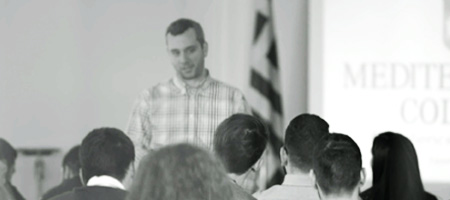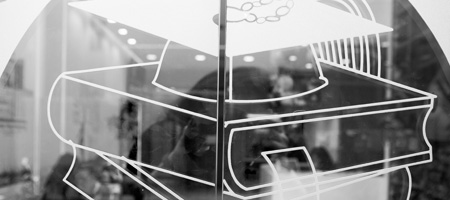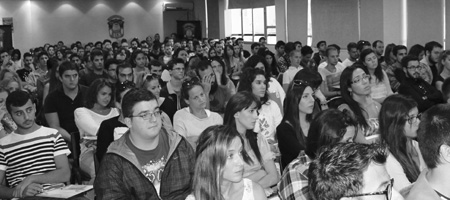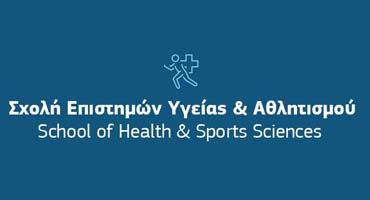





BSc (Hons) Physiotherapy
-
Bilingual teaching: Greek & English.
-
Professional recognition in UK & Greece.
-
1000+ hours clinical practice in rehab centers & hospitals.
-
Contemporary content | Fully equipped physiotherapy labs.
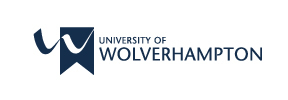
Course Information
The BSc (Hons) Physiotherapy has been designed by the University of Wolverhampton in close collaboration with clinical experts, to meet the knowledge needs of the modern healthcare industry. It is aligned to the specifications of the UK Health and Care Professional Council (HCPC), on the basis of which the Physiotherapy academic programmes are accredited. Consequently, you will be eligible to apply for registration and attain the practitioner’s status in Greece and in the UK.
The BSc (Hons) Physiotherapy course enables you to develop the knowledge and skills to become a safe, competent and effective physiotherapy practitioner. Physiotherapists are essential contributors in improving people’s functional ability and quality of life. They achieve this, through their skills in health promotion and therapeutic and rehabilitation treatment and the use of preventive care measures.
What you will study
Our physiotherapy programme will allow you to study a range of subjects that provide the foundations of effective physiotherapy practice. At its core are the biological, physical, clinical and behavioural sciences. Together with the fundamentals of the therapeutic process, such as physical assessment skills and clinical reasoning, and a repertoire of safe, effective prevention and treatment skills, you will be trained to meet the needs of people of all ages.
You will also explore multifaceted aspects of public health, as well as develop vital research and clinical skills. During the course you will have the opportunity to participate in physiotherapy practice, under the supervision of a physiotherapist, in a variety of collaborating settings (Filoktitis, Theseas, Arogi Rehab Centres, Metropolitan, Euromedica Hospitals, etc.).
As a prospective physiotherapy practitioner, you will appreciate the importance of evidence-based practice, critical thinking, reflection and continuous professional development. Moreover, the management and leadership knowledge and skills you’ll acquire, will enable you to successfully operate within an organised health setting or develop your own entrepreneurial activity.
Why choose this course
You will undertake a transition from a wide range of theory and skills in years 1 & 2, to a more independent exploration, synthesis and interpretation of knowledge in years 3 & 4. Placement in collaborating hospitals and rehabilitation centers is an integral part of the course. Our focus on research will benefit your future academic endeavours towards postgraduate study and your continuing professional development.
Teaching & learning methods focus on the development of theoretical knowledge and clinical skills, including a mixture of different approaches such as lectures, labs, role-plays, case studies, independent learning, guest lectures and seminars, field trips and scientific conferences.
Courses
Introduction to Biology & Physiology of the Human Body The course introduces students to the basic knowledge of the structure and function of the cell as well as the organization of the human body as a whole. The aim of the course is to understand human physiology, focusing on the basic systems of the human body (muscular, skeletal, nervous and cardiovascular-respiratory). Introduction to Human Anatomy The course introduces students to the basic knowledge of anatomy of the human body, focusing on the skeletal, muscular, nervous, cardiovascular and respiratory systems. English for Academic Purposes 1 Students will develop their general English skills in reading, writing, comprehension and speaking. They will also be introduced to English at the academic level. English for Academic Purposes 2 Students will develop their grammar and oral skills as well as an understanding of terms and topics related to the health sciences, in order to be able to meet the academic, professional and social requirements of the profession. Human Body & Physical Activity This section aims to enable students to know and understand the various stages of development and aging throughout a person's life. In addition, the module helps students understand how the body reacts to the onset and continuation of physical activity / exercise. Academic Skills & Introduction to Research Methodology The course aims to develop all the necessary skills of academic writing, oral and written communication, the ability to analyze ideas and evaluate them individually and in groups. Students will be introduced to the basic concepts of research methods and design and will be able to use general and specific computer software. The course will equip students with a variety of skills - academic, communication and computer - which are essential for a successful career in health. Clinical Anatomy, Biomechanics & Kinesiology The module will introduce students to functional and applied anatomy, to the palpation of basic structures and methods of movement analysis, focusing on the upper and lower extremities. Students will be taught the basic principles of biomechanics and will explore methods of restoring and evaluating balance and posture in a pathological or non-pathological population. Pathophysiology, Physiotherapy Assessment and Treatment The module aims to understand the organisation and normal functioning of the human body in relation to the immune system, bone and joint structure and the cardiorespiratory system and explains how these mechanisms change from healthy to pathological conditions. At the same time, there is a practical application of the basic physiotherapeutic evaluation and treatment techniques. Clinical Anatomy, Ergonomics & Exercise Prescription The module allows students to develop their theoretical and practical knowledge in palpation, functional anatomy and methods of analysis of human movement, focusing on the head, neck and torso. Students' knowledge of biomechanics will be further developed. Pathophysiology, Public Health, and Physiotherapy Assessment and Treatment The course aims to understand the fundamental principles of organization and normal functioning of the human body in relation to human movement, pain sensation, and normal development of a child, explaining the differences that occur in these systems between healthy and pathological conditions. Understanding will be achieved through the practical application of assessment and treatment techniques in relation to pain management, therapeutic exercise and the use of electrotherapy. Communication, Team-working and Health Equality The module focuses on critical reflection on professional and interpersonal communication to facilitate the development of skills in self-management, self-presentation, collaboration with different populations and taking on responsibilities, essential elements for practicing the profession in clinical practice. Reflective and Evidence-based Practice In this module students will be introduced to the basic principles of critical, reflective practice through their participation in a range of individual and group activities. They will develop skills so that they can critically approach their professional development and the scientific data they use in their clinical practice. Cardiorespiratory and Ethical Physiotherapy Practice Using the knowledge gained in previous years of study, this course will introduce students to the physiological changes but also to the psychological, social, economic and emotional effects of Cardiopulmonary Diseases on patients and their families. They will be taught and practice physiotherapy techniques for the evaluation and treatment of patients with cardiorespiratory diseases. Through a problem-solving approach, students' communication skills, ethical practice, documented practice and reflective practice will be further developed. Neurology, Gerontology & Palliative Care The module will introduce students to the physiological changes but also to the psychological, social, economic, emotional and mental effects of Neurological Diseases on patients and their families. They will be taught and practiced the physiotherapeutic techniques of evaluation and treatment of patients with neurological diseases. Musculoskeletal, Sports and Exercise Physiotherapy The module will introduce students to the physiological changes but also to the psychological, social, economic, emotional effects of Neuro-Musculoskeletal Diseases on patients and their families. They will be taught and practice the physiotherapeutic techniques of evaluation and treatment of patients with Musculoskeletal Disorders and Sports Injuries. Physiotherapy Practice 1 The clinical practice consists of 4 weeks of physiotherapy practice which will allow students to gain experience in the key areas of physiotherapy, recognising the broader context of health and social care. The main areas concern Musculoskeletal, Neurological, Cardiopulmonary diseases. Students are required to demonstrate clinical skills in relation to specific client groups, as well as the general skills and characteristics of physiotherapy professionals. They will experience safe, effective and physiotherapy practice as a member of a rehabilitation team. Physiotherapy Practice 2 The clinical practice consists of 4 weeks of physiotherapy practice which will allow students to gain experience in the key areas of physiotherapy, recognising the broader context of health and social care. The main areas concern Musculoskeletal, Neurological, Cardiopulmonary diseases. Students are required to demonstrate clinical skills in relation to specific client groups, as well as the general skills and characteristics of physiotherapy professionals. They will experience safe, effective and physiotherapy practice as a member of a rehabilitation team. Physiotherapy Practice 3 The clinical practice consists of 4 weeks of physiotherapy practice which will allow students to gain experience in the key areas of physiotherapy, recognising the broader context of health and social care. The main areas concern Musculoskeletal, Neurological, Cardiopulmonary diseases. Students are required to demonstrate clinical skills in relation to specific client groups, as well as the general skills and characteristics of physiotherapy professionals. They will experience safe, effective and physiotherapy practice as a member of a rehabilitation team. Physiotherapy Practice 4 Students in the final year of study will undergo a 5-week clinical practice in a specialised field of Physiotherapy, which will allow them to gain experience in more complex situations of physiotherapy practice. They will work with increasing levels of autonomy and responsibility and will need to demonstrate clinical assessment and treatment skills in patients with more complex conditions. Physiotherapy Practice 5 Students in the final year of study will undergo a 5-week clinical practice in a specialised field of Physiotherapy, which will allow them to gain experience in more complex situations of physiotherapy practice. They will work with increasing levels of autonomy and responsibility and will need to demonstrate clinical assessment and treatment skills in patients with more complex conditions. Physiotherapy Practice 6 Students in the final year of study will undergo a 5-week clinical practice in a specialised field of Physiotherapy, which will allow them to gain experience in more complex situations of physiotherapy practice. They will work with increasing levels of autonomy and responsibility and will need to demonstrate clinical assessment and treatment skills in patients with more complex conditions. Advances in Physiotherapy Practice This module seeks to equip students with a critical understanding of new developments in the field of physiotherapy practice. Opportunities for physiotherapists have expanded in recent years, with the development of specialist and therapeutic counseling positions. The ability to analyse new roles and practices will enable newly recruited graduates to assess and cope with new work situations they may encounter in the future. Leadership, Management and Partnership Working The module seeks to equip students with a critical understanding of leadership, management and collaboration. Graduate physiotherapists may be called upon to develop and manage their own as well as other services from an early stage of their career. The ability to analyze interpersonal behaviors will enable newly recruited graduates to appreciate and cope with complex situations they may encounter in a work environment and to provide safe patient-centered care. Service Improvement Independent Study Students are asked to select and investigate a specific clinical or administrative issue relevant to their professional practice using appropriate research skills. The overall project should aim to improve the provision of physiotherapy services. Year 1
Year 2
Year 3
Year 4
Admission Requirements
This course is right for you, if you are a high school graduate who wish to follow a career as a Physiotherapy practitioner.
The minimum English language requirement for admission to year 1 is equivalent to IELTS 5.0 (B1+) and for admission to year 2 is equivalent to IELTS 6.0 (B2). If you do not possess an official English language certificate, you can sit the College’s internal placement test.
Moreover, you will be asked to submit a reference letter from a tutor, and you’ll be called for an academic interview with the programme leader.
If you are a holder of an IEK/ HND diploma in a related discipline, you are eligible to apply directly to year 2 of this course.
Application & Enrolment
We use a rolling admissions policy, so we accept applications throughout the calendar year until all available places are filled. Since this is a lab-based course with a cap in available places, we urge you to submit your application in time.
We also offer multiple fee payment methods, individual payment plans and bursaries based on academic, athletic and socio-economic criteria.
Contact us today and find out more about this course and the available bursaries and funding opportunities. Our admissions advisors will provide you with all necessary information and will guide you through the application and enrolment process.
Degree recognition
As a graduate of a UK accredited course, you can apply for registration with the Health and Care Profession Council (HCPC) via the international route. Once registration with the HCPC is completed, you can apply for professional recognition with the Ministry of Education (ATEEN). According the national legislation, you are entitled to the same professional rights as graduates of Greek, stare Universities. Responsible for issuing a license to practice in Greece, is the Panhellenic Physical Therapy Association.
Postgraduate study
You may continue towards postgraduate study in Advanced Physiotherapy or specialise in any Physiotherapy route you choose. Moreover, you could train further in areas such as rehabilitation, physiology, psychology, etc.
At Mediterranean College you may choose among:
- Health Psychology
- Sports Physiotherapy
Career
As a registered physiotherapist you can run your private practice in your clinic and/ or conduct home visits. You may also work as an associate physiotherapist at:
- Hospitals and clinics
- Rehabilitation centers (children and adults)
- Rehabilitation centres for disabled people
- Private physiotherapy clinics
- Sports clubs and associations
- Nursing homes
- Hydrotherapy centres
Testimonials
I truly loved attending the classes for the Health Management programme. The courses were really interesting and the teachers made great effort to transmit their knowledge, which I honestly appreciate. Last but not least, my fellow students made last year more enjoyable and fun with their presence during classes! Thank you everyone for the great experience!...
Igodaro Victor, Executive Diploma in Health Care Management
In the Physiotherapy department of Mediterranean College we connect what we learn in theory into practice, through workshops and practical courseworks. From the second year and beyond, every year, the programme content includes clinical practice. All this, combined with our teachers who help us, support us and are experienced in what they teach, makes me feel confident about my skills as a physiotherapist....
Efitichia Proniou, BSc (Hons) Physiotherapy
The vast experience of Mediterranean College, along with the name of a renowned British university, the Manchester Metropolitan University, were essential selection criteria of this studies programme. The College’s learning facilities are robust and they organise too many education activities to enrich our knowledge. We look forward to starting our clinical practice in the College’s cooperating hospitals and rehabilitation centers....
Apostolis Kaliakoudas, BSc (Hons) Physiotherapy
